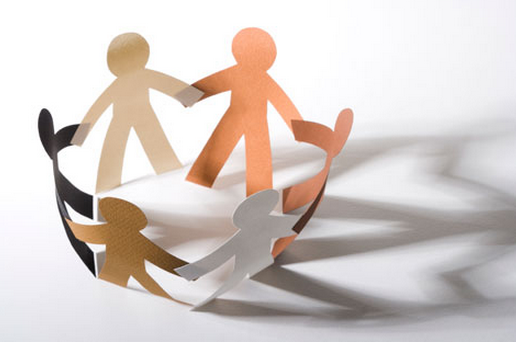One of the most well-researched human motives is our need to belong. (Lavigne, Vallerand, Crevier-Braud, 2011) Belongingness can be defined as “a universal need to form and maintain positive, stable interpersonal relationships” (Lavigne et al., 2011) Support for this hypothesis can be found in the 2006 Canadian census where it was reported that 90% of the population had at least two people per household. Self determination theory states that in order to function optimally at the core of our very existence is a basic psychological need to relate to and care for another person. (Lavigne et al., 2011) This need to belongs is so deeply rooted in our psyche that any threat of rejection conjures reactions that are similar to those of physical pain. (Laslocky, 2013)
According to researchers Baumeister & Leary (1995) this need to belong has its roots in evolution. In order for our ancestors to reproduce and survive it was essential that they establish social bonds. (Baumeister & Leary, p. 499, 1995) Thus, from an evolutionary selection perspective we now possess internal mechanisms that direct humans beings into lasting relationships and social bonds. (Baumeister & Leary, p. 499, 1995) Our need to be connected and establish healthy bonds is as essential to our emotional and physical well beings as food and safety. (Barnes, Carvallo, Brown & Osterman, p. 1149, 2010)
When we experience interpersonal strife we often contemplate walking away rather than sticking it out, however, finding a relationship with similar depth is not an easy task. (Barnes, et al., p. 1148, 2010) If we always ended every relationship thinking that we can swop-out the old for a more positive one, we would find ourselves in a constant state of seeking and never experiencing and this would conflict with our fundamental need to belong. (Barnes, et al., p. 1148, 2010)
This explains why so many individuals are apt to hold on to destructive relationships. The fact that some people display an unwillingness to leave an abusive partner conveys the strength and power of our need to belong. (Baumeister & Leary, p. 503, 1995) Any threat to social attachments can often lead to anxiety, depression, jealousy and loneliness. (Baumeister & Leary, p. 506, 1995) Individuals will feel anxious at the thought of losing an important relationship, they may feel depressed when the connection ends and then feel lonely because they no longer have the important relationship. (Baumeister & Leary, p. 506, 1995) One such example of this is the death of a loved one. (Baumeister & Leary, p. 506, 1995) Some researchers have conceptualized grief not as a reaction to the death, but as breaking the connection with another individual. (Baumeister & Leary, p. 507, 1995) An explanation for this can be found in research that described the feelings of heartbreak similar to that of physical pain. This pain is caused by the hormonal triggering of the sympathetic activation activation system (region where flight-or-flight stress takes place) and the parasympathetic nervous system. (Laslocky, 2013)
Although this need to belong exists within us all, it’s imperative that we never lose our sense of individuality and well-being. If we find ourselves in relationships whether it be with a friend, boyfriend, girlfriend, or spouse that seems toxic and destructive we should move on. It may feel literally painful, but we’ll be stronger and wiser as a result.

